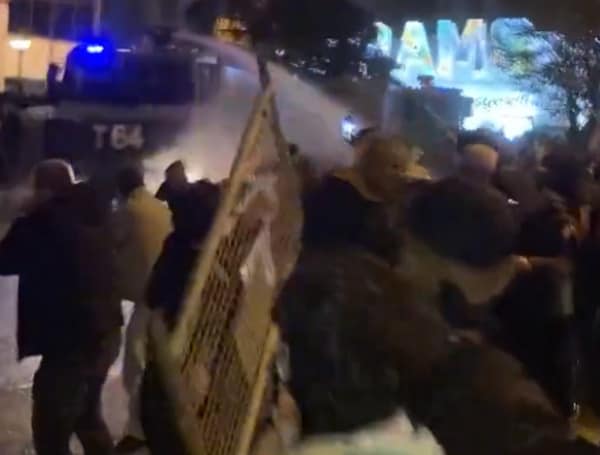The Middle East has once again become the center of global attention as protests erupt in the region, sparked by a blast at a Gaza City hospital.
The incident, which claimed the lives of hundreds of people, has led to a blame game between Palestinians and Israelis, further escalating tensions in the already volatile region.
According to the Gaza health ministry, the blast at the hospital was caused by an Israeli airstrike. However, Israeli military officials have attributed it to a failed rocket launch by the Palestinian Islamic Jihad militant group.
In the news: German Festival-Goer, Shani Louk, Identified As Young Woman Paraded Around In Truck By Hamas Terrorists
The exact number of casualties remains uncertain, with initial reports suggesting anywhere from 300 to 500 deaths. Independent verification is challenging due to the ongoing conflict.
Prior to the hospital blast, Gaza health authorities reported a death toll of at least 3,000 during Israel’s 11-day bombardment, which was in response to a Hamas rampage on southern Israeli communities.
The escalating violence has left the international community deeply concerned, prompting U.S. President Joe Biden to plan a visit to Israel in a show of support and to discuss strategies for minimizing civilian casualties.
The repercussions of the hospital blast are far-reaching. Jordan’s foreign minister, Ayman Safadi, canceled a summit with Biden and other regional leaders, indicating the gravity of the situation.
Protests have erupted across the Arab world, with demonstrations held in Turkey, Jordan, Lebanon, Yemen, Morocco, and Iraq. Lebanon’s Hezbollah militant group has strongly condemned the attack and called for widespread anger against Israel and Biden’s visit.
Amid the chaos and conflicting accounts, both Israeli and Palestinian officials have traded blame for the hospital blast.
Palestinian President Mahmoud Abbas condemned the incident as a “hideous war massacre,” accusing Israel of crossing all red lines. Israeli Prime Minister Benjamin Netanyahu, on the other hand, pointed fingers at Palestinian militants, emphasizing that it was terrorists in Gaza who attacked the hospital.
Israeli military spokesperson Rear Admiral Daniel Hagari cast doubt on the Palestinian death count, stating that there was no direct hit on the hospital.
He further asserted that Israel had intelligence proving Gaza militants were responsible. The Israel Defense Forces (IDF) attributed the blast to the Palestinian Islamic Jihad, which, like Hamas, is designated as a foreign terrorist organization by the United States.
However, Daoud Shehab, a spokesperson for Islamic Jihad, denied their involvement, labeling the Israeli claims as lies and fabrications. The ongoing investigation aims to establish the truth behind the incident and hold the responsible party accountable.
The hospital blast has ignited widespread anger and protests in the occupied West Bank. Palestinian security forces clashed with demonstrators in Ramallah, where popular discontent with President Mahmoud Abbas was evident. The protests have amplified the urgency of resolving the crisis and have led to the cancellation of key diplomatic summits.
Across the Arab world, condemnations of Israel have resonated.
Protests near Israeli embassies in Turkey and Jordan turned violent, with security forces resorting to tear gas to disperse the crowds. Similar scenes unfolded near the U.S. embassy in Lebanon, reflecting the high stakes involved in the ongoing conflict.
The Middle East has long been a hotbed of conflict and geopolitical rivalries. The Israeli-Palestinian conflict, in particular, has deep historical roots and complex dynamics.
The ongoing violence in Gaza and the West Bank is a stark reminder of the unresolved issues and deep-seated grievances that continue to fuel tensions in the region.
The hospital blast and its aftermath also have broader regional implications. The international community is closely watching the developments, with concerns about the potential spread of the conflict.
Efforts to contain the crisis have become increasingly complicated, as demonstrated by the cancellation of the summit in Jordan and the escalating protests across the Arab world.
Android Users, Click To Download The Free Press App And Never Miss A Story. Follow Us On Facebook and Twitter. Signup for our free newsletter.
We can’t do this without your help; visit our GiveSendGo page and donate any dollar amount; every penny helps



